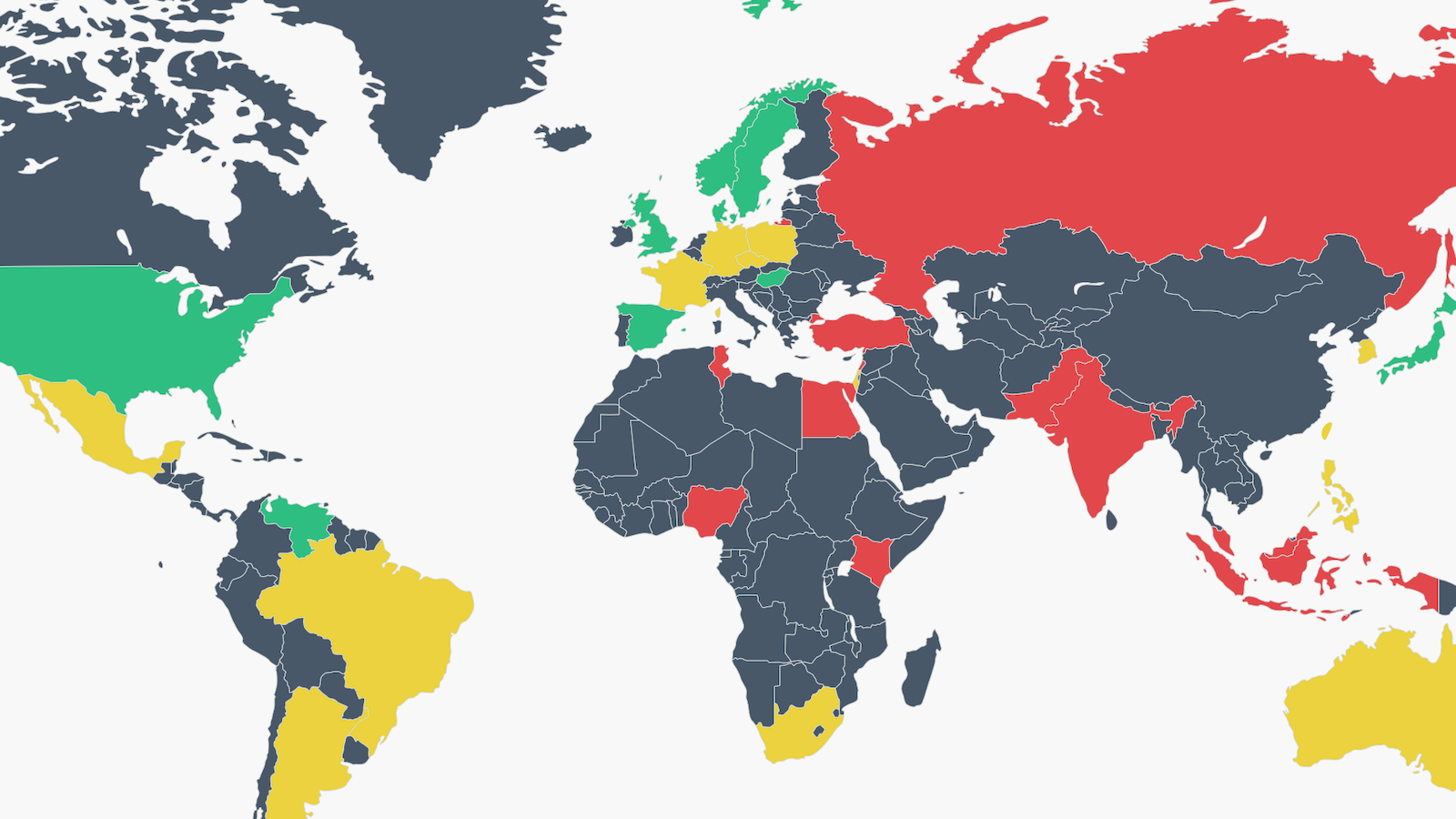democracy
In some countries, people want more freedom of speech. In others, they feel that there is too much.
The public sphere should be open to conflict.
For some philosophers, hope is a second-rate way of relating to reality.
The opening lines of Smartmatic’s $2.7 billion lawsuit against Fox News lay bare the culture of denial in the US.
Even tyrants and despots offer wisdom worth heeding.
7 scholars and legal experts dissect what you can and can’t say in America.
▸
22 min
—
with
“Deepfakes” and “cheap fakes” are becoming strikingly convincing — even ones generated on freely available apps.
The platform experiments with letting users decide what content needs flagging.
Debating is cognitively taxing but also important for the health of a democracy—provided it’s face-to-face.
A new survey shows who believes what and how it differs from what Americans believe as a whole.
“The function of private media is to make money for the people who own the media. It is a business,” Sanders said.
Google’s “Year in Search 2020” results reveal a year when “why” was searched more than ever.
It was a concept borrowed from the Iroquois, and one that America never quite mastered.
▸
6 min
—
with
Recent American presidents have all faced a crisis of legitimacy in a trend that threatens the health of our democracy.
In this 1915 map, Lady Liberty shines her light in the West on women in the East, still in electoral darkness
States set their own voting laws, so where does this make voting easiest?
Why not just divide the United States in slices of equal population?
Law professor Ganesh Sitaraman explains why America has never achieved true democracy—and how it can.
▸
6 min
—
with
Psychologists W. Keith Campbell, (Ph.D.) and Carolyn Crist explain why narcissists rise to power and how to make sure your support is going to someone making effective, positive change.
The 20th century was marked by waves of pro-democracy revolutions. Now, the future of democracy looks uncertain.
In his new book, “American Rule,” Jared Yates Sexton hopes to overturn a centuries-long myth.
Will nefarious players use social media to sway public opinion again this November?
The Himalayan Kingdom best known for its concept of “Gross National Happiness.”
A simple postcard can improve voter registration rates. Who knew?
Comfort has won, and most formality is gone.
Sophists used rhetoric and debate to arrive at practical truths.
According to Harvard economists, Democrats and Republicans both perceive reality very wrong.
A massive Dating.com study reveals just how important politics are in the dating world right now.
Remaining silent is being complicit.
Trump is #45 but Pence is #48 – and other strange consequences of the curious office of vice president.





























